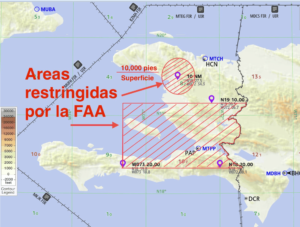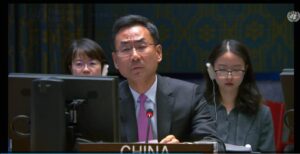Europe is one of the largest consumers of banana in the world, with an average of 14 kilos per person per year, and its largest supplier is Latin America, whose main producers denounce that in European supermarkets there is a discount war that does not respect the fair price of the product.
They sell it below its real value, they say, without this reflecting their efforts to comply with regulations, achieve certifications and pay. decent wages.
- Recently, the Latin American Joint Task Force, which is made up of the unions banana exporters from Colombia, Costa Rica, Ecuador, Guatemala, Peru and the Dominican Republic, denounced that the German supermarket chain Lidl sold banana of Latin American origin at 0.89 euros per kilo, almost one euro below its competitors.
Others European supermarkets They also currently sell it at 0.99 euros per kilo, with a 32% discount compared to its usual price of 1.47 euros per kilo.
For José Antonio Hidalgo, executive director of the Association of Banana Exporters of Ecuador (AEBE), the world’s leading exporter of this fruit, these types of offers do not reflect the industry’s efforts to bring a quality product to Europe that complies with all regulations.
“It causes us a lot of concern, because our banana has lost 20% of its value in the last fifteen years,” Hidalgo warned.
“That strategy, at the end of the day is not sustainable because you will never finish a vicious cycle of low pricess”, said the representative of AEBE, pointing out that this will not be able to improve the conditions of the value chain of the banana.
Fair trade as a reference
Hidalgo advocated involving the European authorities, the certifiers and the supermarkets, so that the consumer understands that the new regulations and demands of the European Union (EU), such as the Due Diligence Lawthe Green Deal and the ‘Farm to Fork’ strategy, have a cost.
“We can’t have a green pact with red numbers,” he said.
“I am aware that the European consumer will understand if it is explained well that they have to pay a little more to generate sustainability throughout the chain,” said Hidalgo during the celebration of the twenty-first edition of the ‘Banana Time‘, the largest international convention of the banana industry, which AEBE organizes annually in Guayaquil (Ecuador).
The executive director of AEBE pointed out that “the reference for negotiation in Europe at the supermarket level has to be the methodology of fair trade or ‘fair trade'”, which calculates the structure of production costs in each country.
In Ecuador, the fixed minimum price At the national level for the 18.14 kilo box it is 6.85 dollars and it is expected to be 7.25 dollars in 2025.
The methodology’fair trade‘ has been incorporated by the German supermarket chain Aldi and the British Sainsbury’s, “but more retailers have to join, and until now we have not seen a sign of that true intention to have shared responsibility in the chain,” lamented Hidalgo. .
In the case of Sainsbury’s, this week it sells fair trade certified bananas at 1.25 pounds (1.49 euros or 1.62 dollars) for eight units and half a dozen units of organic production at 1.80 pounds (2.15 euros or 2.33 dollars), as EFE was able to verify.
Bananas with decent wages
Hidalgo emphasized that the banana Ecuadorian complies with all requirements, regulations and labor rights, having eleven seals and each producer undergoing 29 days a year of audits.
He detailed that the average salary is 562.50 dollars, above the 483 dollars calculated by the Living Wage Coalition around the handling of the EU Due Diligence Law.
“We are a country that has a banana that goes with a living wage to the EU. We are in full compliance,” Hidalgo emphasized, noting that 55% of the cost structure of a box of banana It is labor.
With more than 3.5 billion dollars in exports in 2023, the EU and Russia concentrate more than half of the banana exports Ecuadorian, so what happens in those markets impacts the economy of Ecuador.
“We are the ones that have the greatest social impact, because unlike other countries that they produce banana“We have 5,400 producers, of which about 3,400 are small, they are family economies to which any change affects their economy and family,” Hidalgo concluded. EFE



